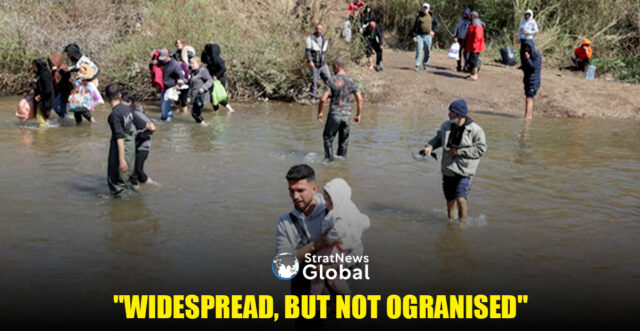A Syrian fact-finding committee reported on Tuesday that 1,426 people were killed in March during attacks on security forces and retaliatory massacres targeting Alawites, but concluded that military commanders had not issued orders for the revenge killings.
The incidents in the coastal region were the worst violence to hit Syria since the downfall of President Bashar al-Assad last year.
The fact-finding committee’s work is seen as an important test of the new leadership, made up mainly of former anti-Assad rebel fighters, who are facing new unrest this month involving other minority groups in the southwest.
No Orders For Revenge
The committee concluded that Syrian commanders did not give orders to commit violations and, in fact, gave orders to halt them.
It came up with a list of 298 suspects involved in violations against Alawites and 265 involved in the initial attack on security forces, committee head Jumaa Al-Anzi said.
The names are not being released publicly for now and have been referred to courts for further investigations, spokesperson Yasser Farhan said. He added that 31 people who committed violations against civilians had been arrested, as well as six people he referred to as “remnants” of the former regime.
A Reuters investigation last month identified 1,479 Syrian Alawites killed and dozens who were missing from 40 distinct sites of revenge killings, and found a chain of command leading from the attackers directly to men who serve alongside Syria’s new leaders in Damascus.
Syria’s new leadership, which has roots in the insurgency led by Sunni Muslim Islamist groups against Assad, a member of the Alawite minority sect, has long sought to reassure minorities that they will be safe.
Safety of minorities has become a major issue again this month with hundreds of people killed in clashes between government security forces, Sunni Bedouin fighters and militants from the Druze sect in the southern province of Sweida. The authorities have set up a new fact-finding committee in response.
‘Widespread But Not Organised’
The violence in March began on March 6 with attacks on Syrian security forces stationed in the region. It put hospitals and other state institutions out of operation and caused wide areas to fall out of government control, Farhan said.
The committee found that 238 members of the security forces were killed in these attacks, perpetrated by forces aligned with the former Assad government, Farhan said.
In response, around 200,000 armed men mobilised from across Syria, pouring into the coastal region, he said.
‘Widespread, But Not Organised’
This led to violations including killings, theft and sectarian incitement that the committee found were “widespread but not organised,” Farhan said.
Farhan said the committee members had full cooperation from government forces as they undertook their months of work, and it was now up to President Ahmed al-Sharaa whether to release their report in full.
Diana Semaan, Syria researcher at Amnesty International, called for the full findings to be released and for perpetrators to face prosecution.
“In terms of the fact-finding committee, acknowledging that atrocities against Alawite civilians happened is an important step towards justice,” she told Reuters.
“[But] without the proper prosecution of perpetrators, then we have impunity. It won’t be the justice and accountability that the victims deserve.”
(With inputs from Reuters)





